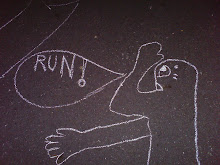
Facebook has become one of the primary tools for activists to co-ordinate protests,communicate and share information. It successful helped in bringing down the Mubarak regime and continues to be used in this manner by people in countries that feel that it is time for a change.
"Dictators are toppled by people, not by media platforms. But Egyptian activists, especially the young, clearly harnessed the power and potential of social media, leading to the mass mobilizations in Tahrir Square and throughout Egypt. The Mubarak regime recognized early on that social media could loosen its grip on power. The government began disrupting Facebook and Twitter as protesters hit the streets on Jan. 25 before shutting down the Internet two days later."
(http://omdsource.com/news/social-media-plays-role-in-egypt-some-expected-in-iran/)
Many interesting things have come about from this use of Facebook. There are two notable things, the degree in which Facebook has been attributed to the revolution being one.
When asked,Ghonim, a 30-year-old Google executive who became a symbol of the country’s democratic uprising , told CNN's Wolf Blitzer ..“This revolution started online...This revolution started on Facebook.”
Even an Egyptian father Jamal Ibrahim has reportedly named his newborn daughter "Facebook" to honor the social media site's role in Egypt's revolution. He wanted to express "his gratitude about the victories the youth of 25th of January have achieved and chose" and chose this form.
(http://www.huffingtonpost.com/2011/02/21/baby-named-facebook-egypt_n_825934.html)
The second notable point is how Facebook is downplaying its role in the uprising.
"The reasons? It doesn't want to be viewed as a political football, for one thing, and for another, there are business concerns. A report in The New York Times says that Facebook:
It seems however way anyone wants to play it, the cogs have been set in motion and Facebook is set to be utilised as a tool for change in the foreseeable future with other revolts already brewing in Libya,Tunisia and Yemen.... finds itself under countervailing pressures after the uprisings in the Middle East. While it has become one of the primary tools for activists to mobilize protests and share information, Facebook does not want to be seen as picking sides for fear that some countries — like Syria, where it just gained a foothold — would impose restrictions on its use or more closely monitor users, according to some company executives who spoke on the condition of anonymity because they were discussing internal business."


No comments:
Post a Comment